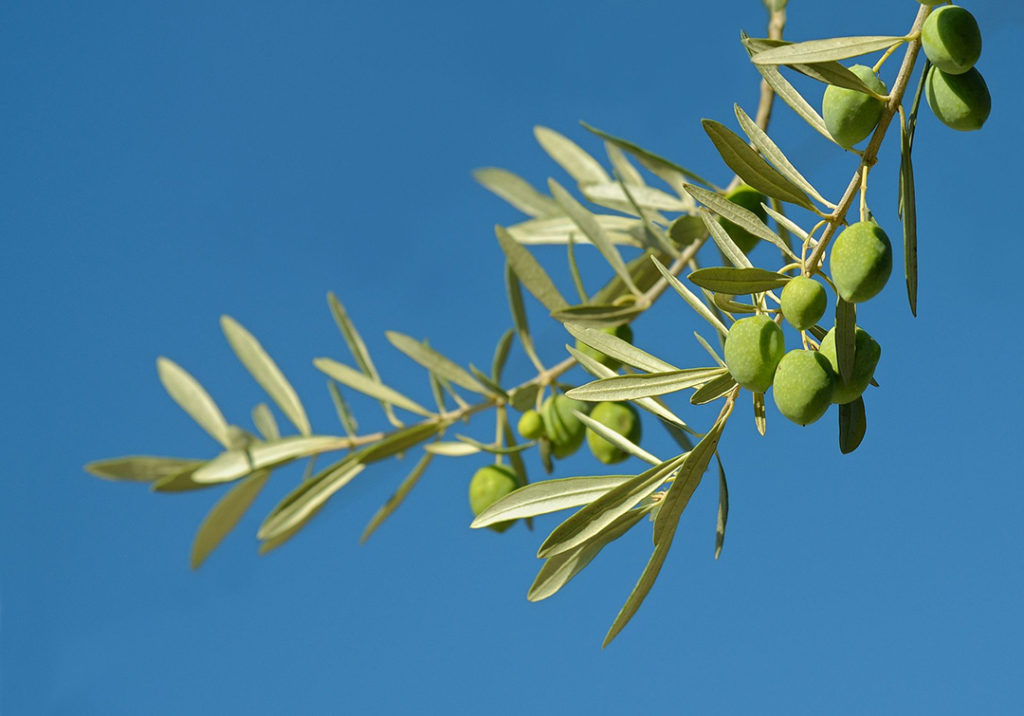
Gaza Strip and West Bank
Olive Tree
Olea europaea

General Description / Cultural Significance
The olive tree, Olea europaea, represents peace and longevity for the people in Palestine, as it is a slow-growing, drought-resistant shrub that can withstand tough conditions. There is evidence it has been cultivated in the area for thousands of years, and the olive itself has had a major influence on religious practices including both Judaism and Islam. The oldest olive tree in the world grows in Palestine. Many olive trees stay within families for generations upon generations, endowing them with intense personal meaning. The tree is native to the Mediterranean region and grows best in summer heat.
The tree is cultivated in the country for its olive fruit, used both for medicine and food, but especially to make olive oil. The majority of the olive harvest is used for olive oil, and the rest are used for food or soap. Table olives are commonly enjoyed. Olive leaves can be used for lowering blood pressure, and to treat rheumatism. The leaves are used to make tea to boost the immune system, and to defend against cold and flu. Olives are antioxidant, antibacterial, and anti-inflammatory.
Olive oil is a major export for Palestinians, and they rely heavily on the olive harvest for economic security. This is often the only source of income for families. Palestinian farmers face challenges due to a restrictive permit system for growing trees, run by Israeli authorities on the West Bank. Palestinians are also incredibly challenged by rampant settler attacks in the area. Israeli settlers are reported to especially attack farmers, and both the army and the settlers intentionally prevent farmers’ access to their olive trees. This often means Palestinian farmers must seek escort by international volunteers in order to safely tend to their trees, though this also doesn’t ensure their safety. The beloved tree itself has become a charged point of conflict. Settler attacks often result in the burning or cutting down of age-old olive trees.
Climate Change/Conservation Status
In 2020, Israel and Palestine were hit with a scorching heat wave that broke record temperatures. Precipitation is decreasing dramatically, meaning water scarcity will become an even larger problem than it already is in the region. Storms will be far more frequent and difficult for infrastructure to handle. Israel has not attempted to make any real changes to their carbon emissions and has not come up with a climate change adaptation strategy.
Palestine will be disproportionately devastated by these warming effects. Israeli authorities are in charge of resources such as access to water, and they have historically denied Palestinian rights to it. Much of the water in the Gaza strip is unfit to drink, and so even more restriction placed on it will prove devastating and fatal. In addition, it will present challenges for olive tree growers who need water for agriculture. As the summers get hotter, it is increasingly more dangerous for people to farm outside at all.
The IUCN does not list Olea europaea as endangered, as data is insufficient to tell, but destruction by fire as a result of conflict in the area presents one of the largest threats to the trees that grow there.
Alternate Names
Common olive
European olive
Olive

